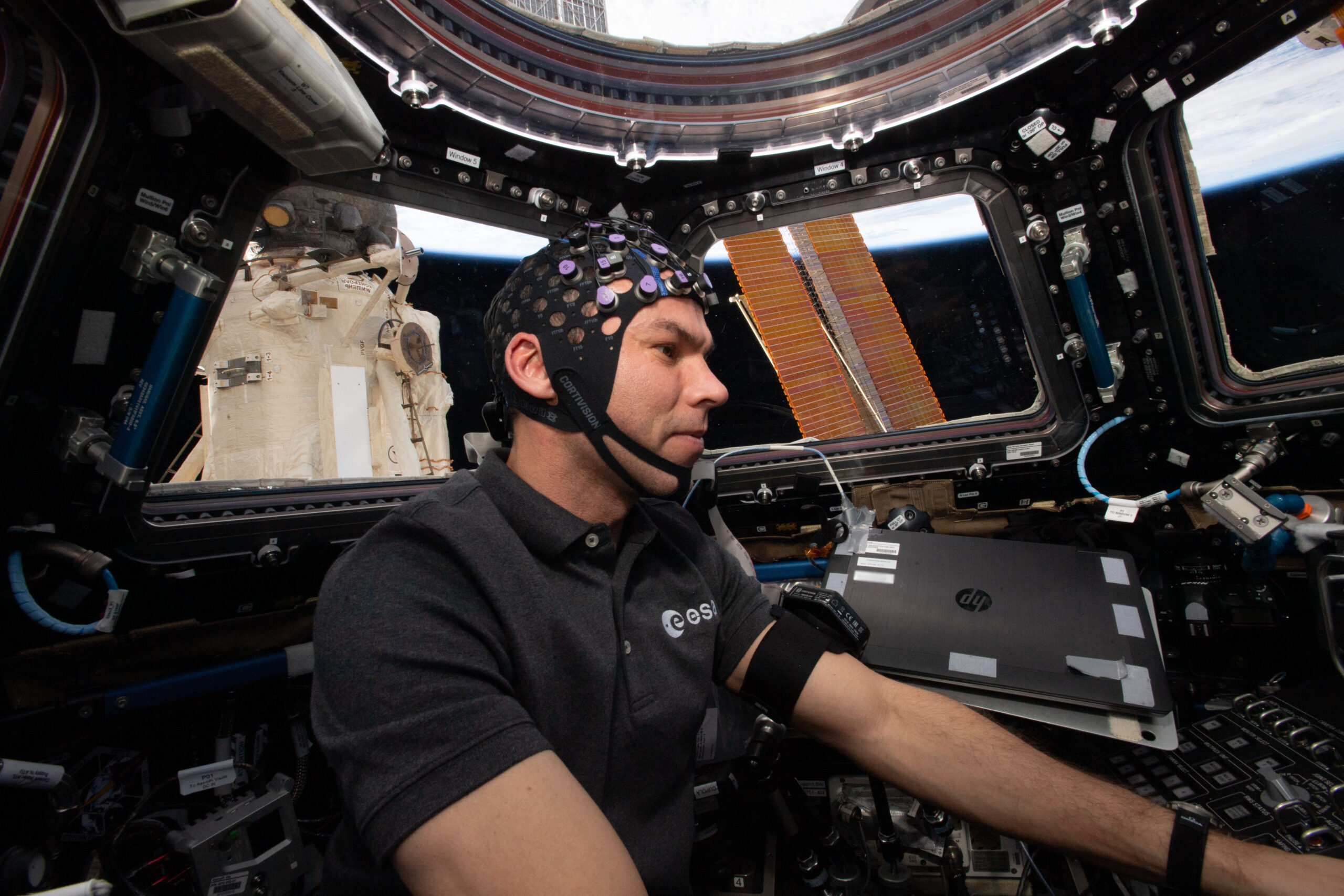In a captivating new update from Axiom Space, we dive into the crucial role of brain activity research in space, featuring insights from Cortivision’s Chief Operating Officer, Wojciech Broniatowski. As part of the Ax-3 mission to the International Space Station (ISS), Cortivision continues to push the boundaries of neuroscience using functional Near-Infrared Spectroscopy (fNIRS) technology, suited for the unique conditions of space.
The latest mission update highlights the significance of understanding how the human brain functions in microgravity. Wojciech Broniatowski, COO of Cortivision, underscores the importance of this research for both current and future space missions. As astronauts aboard the ISS are equipped with Cortivision’s fNIRS technology, the ability to monitor brain activity provides invaluable data for comprehending the neurological effects of the extended stay in space.
Wojciech Broniatowski delves into the technical aspects of Cortivision’s fNIRS technology, emphasizing its suitability for space conditions. Functional Near-Infrared Spectroscopy measures changes in blood oxygenation levels in the brain, offering a non-invasive and portable solution for monitoring neural activity. This technology’s adaptability to microgravity environments makes it an ideal tool for gaining insights into how the brain copes with the challenges of space travel.
As the Ax-3 mission progresses, the collaboration between Axiom Space and Cortivision continues to pave the way for groundbreaking discoveries in space neuroscience.
fNIRS in space
Wojciech Broniatowski delves into the technical aspects of Cortivision’s fNIRS technology, emphasizing its suitability for space conditions. Functional Near-Infrared Spectroscopy measures changes in blood oxygenation levels in the brain, offering a non-invasive and portable solution for monitoring neural activity. This technology’s adaptability to microgravity environments makes it an ideal tool for gaining insights into how the brain copes with the challenges of space travel.
As the Ax-3 mission progresses, the collaboration between Axiom Space and Cortivision continues to pave the way for groundbreaking discoveries in space neuroscience. The mission update featuring Wojciech Broniatowski sheds light on the intersection of technology, neuroscience, and space exploration. The insights gained from monitoring brain activity in real-time using fNIRS technology will undoubtedly shape the future of space travel, ensuring the well-being and success of astronauts on missions beyond Earth. The innovative use of fNIRS technology showcases the commitment of Axiom Space and Cortivision to advancing our understanding of the human mind in the unique conditions of microgravity. As we eagerly await further updates from the Ax-3 mission, it is evident that this collaboration is not only unlocking the mysteries of the mind in space but also laying the foundation for the future of space exploration.
We believe that by simplifying the use of this technology we will make new applications in new areas available and the current use in science will simply become much easier. And also designed for non-laboratory, mobile conditions.
Wojciech Broniatowski
Ax-3 mission specialist Markus Wandt

Commentary: Swedish astronaut Markus Wandt using Cortivision’s fNIRS in the Orbital Architecture Activity from KTH Royal Institute of Technology, Ax-3 mission on the ISS, January 2024
Ax-2 mission Nebula project research

Commentary: Watch astronauts from the Ax-2 mission performing fNIRS research on the ISS!

